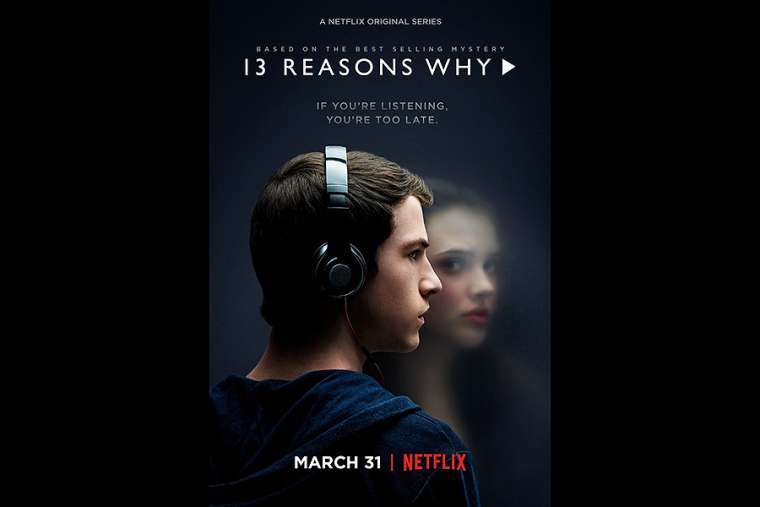WASHINGTON, D.C. – A new study from the University of Michigan warns that the popular–and controversial–Netflix show “13 Reasons Why” could influence teens who are considering suicide.
The show, which is an adaptation of the 2007 Jay Asher young adult novel of the same name, tells the story of 17-year-old Hannah Baker and the aftermath of her suicide. Baker left behind a series of audiotapes she had recorded prior to her death implicating people she said were the reasons why she chose to end her life.
When the show was released on Netflix last year, it was criticized for its on-screen depiction of suicide and the overall tone of the series. Catholic leaders urged “extreme caution” regarding the show, and Suicide Awareness Voices of Education, a nonprofit that aims to prevent suicide, said that they feared the show may do “more harm than good.”
The show’s second season, which was released in May, was shown with a disclaimer that instructed younger viewers to watch the show with an adult and to seek help if they had suicidal thoughts.
Now, a recently-published study supports some of these fears. The study “13 Reasons Why: Viewing Patterns and Perceived Impact Among Youths at Risk of Suicide,” published Nov. 21 in Psychiatry Online, surveyed 87 suicidal teenagers aged 13 to 17 who were taken to the emergency department.
As part of the survey, teens were asked 44 questions related to the show, including who they watched it with and how they were influenced by its story. If a person reported that they had not previously heard of the show, they were not asked any more questions in order to avoid drawing attention to the series.
Of the 87 people surveyed, 43 of them said that they had watched at least one episode of the show. Of those who had watched the show, 21 of them said that they believed it heightened their suicide risk.
While the lead author of the study Victor Hong, M.D. admits that these findings do not definitively prove anything about a risk of suicide, “it confirms that we should definitely be concerned about its impact on impressionable and vulnerable youth,” he said.
“Few believe this type of media exposure will take kids who are not depressed and make them suicidal,” said Hong. Instead, “the concern is about how this may negatively impact youth who are already teetering on the edge.”
Although Netflix encouraged teens to watch the show with an adult, the University of Michigan study showed that very few parents had actually watched the show, and some did not know their children were watching. The study showed that 84 percent of those who watched the show had watched it alone, and they were more likely to discuss the program with their peers, instead of their parents.
Teens who strongly identified with the character of Baker were more likely to say that the show increased their risk of attempting suicide.











